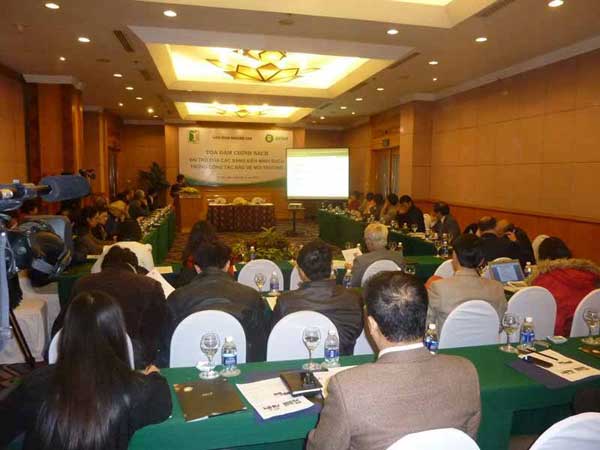In Vietnam, management of wildlife diseases has garnered attention from both the State and the public. This is evident through a comprehensive system of regulations addressing diseases that can be transmitted from wildlife to humans spanning a range of documents, from laws to decrees and circulars. However, despite these efforts, the practical implementation of wildlife disease management still encounters numerous challenges and shortcomings.

Expert says neglect of duty in mining a form of corruption
The neglect of obligations in protecting the environment in exploiting natural resources can be seen a delicate form of corruption, an expert said at a seminar on Wednesday on transparency initiatives to protect the environment.
Dang Hung Vo, former deputy minister of natural resources and environment, told the meeting that many investors belittle the task of environment protection in their projects, thus doing harm to the environment and the community.
The strategic environment assessment and the environment protection statement required for such projects, especially those in mining, have not properly attended to by project owners, and in many cases, investors prepare such studies only to gain regulatory approval for their projects, Vo said.
The community can hardly get access to information on environment protection from each project, while compensations for the community due to environmental damages have not been properly enforced, he said.
 Photo: PanNature.
Photo: PanNature.
“The failure to fulfill environment protection obligation in projects to tap natural resources is therefore a form of corruption,” he told the seminar organized by the non-profit organization PanNature in Hanoi.
Do Thanh Bai from Chemistry Society of Vietnam said thousands of licenses had been issued to investors as of may 2013 to tap natural resources nationwide. These include 79 licenses issued by the Ministry of Natural Resources and Environment, 530 licenses issued by other central agencies, and 4,200 licenses granted by provincial governments.
However, between 30% and 40% of mining enterprises do not make periodic reports on their operations as required, he said.
Under prevailing regulations, of all the taxes payable by mining enterprises, 30% is to be paid to the central State Budget, while the remaining 70% is paid to provincial coffers. Information about the payment of such taxes is not transparent, Bai said.



